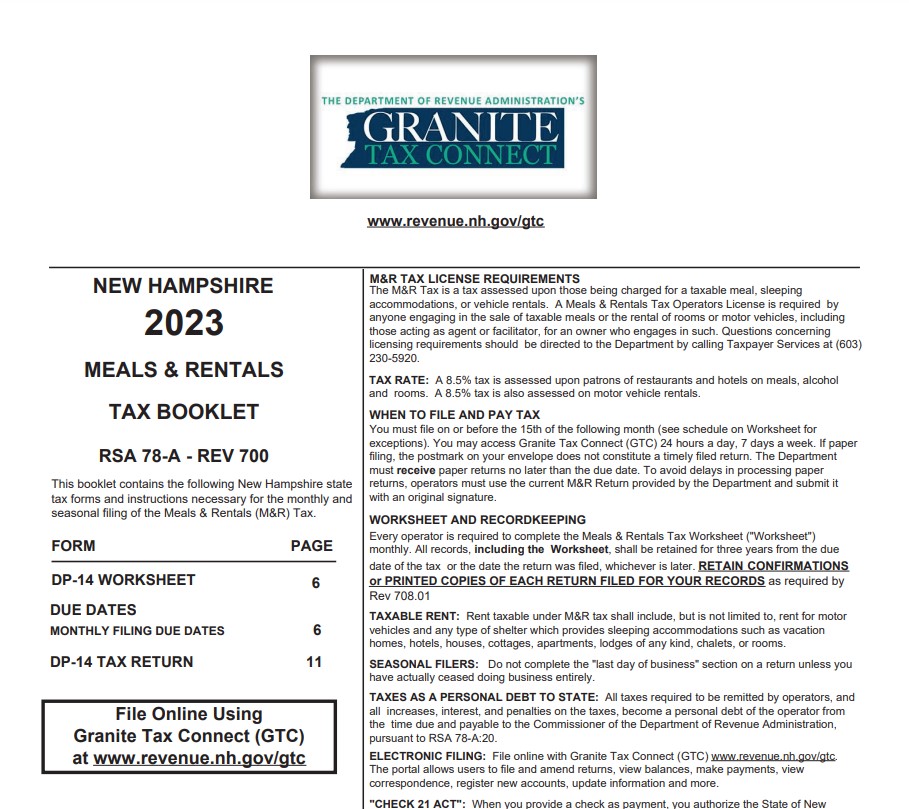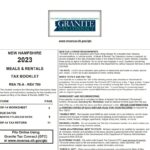New Hampshire Renters Rebate 2024 – For qualified residents who rent their principal residence in the state, New Hampshire provides a renter’s rebate. Up to a certain amount, the reimbursement is based on a percentage of the rent that was paid. Residents must satisfy the residence and income requirements to be eligible.
Income necessities:
Residents must earn no more than $50,000 a year to be qualified for the refund.
criteria for residency
Residents must have rented their principal house in New Hampshire for at least a year in order to be qualified for the reimbursement.
Rate of rebate:
Up to $1,000 in total, the refund is computed as a portion of the charge of rent paid. The amount of the refund is determined as follows:
Rent paid x the rebate rate equals the rebate sum.
When the rebate rate is 20%, for instance, and a tenant paid $5,000 in rent for the year, the rebate would be $1,000 ($5,000 x 0.20 = $1,000).
The most you can get back is $1,000.
Residents must fill out and submit a rebate application to the New Hampshire Department of Revenue Administration in order to be considered for the reimbursement. By December 31st of the year behind the year the rent was paid, the application must have been mailed.
Visit the New Hampshire Department of Revenue Administration website for further details on the renters’ rebate in New Hampshire, including the income and residence criteria, refund amount, and application instructions.
How to apply
In New Hampshire, renters who qualify for a refund on a portion of their rent may get one. The rebate’s amount is determined by your salary, how much you pay for rent, and how many dependents you have.
For the rebate to apply, you must:
– Be a resident of New Hampshire
Be at least 18 years old.
If you live in New Hampshire, rent your main home.
Earn no more than $50,000 per year in income.
have made at least three monthly rent payments in the past year.
If you satisfy all the requirements listed above, you may start the application process by obtaining the necessary paperwork:
A copy of the most recent rent receipt you have
A duplicate of your lease
– Documents proving your New Hampshire address, such as a driver’s license or utility bill
The numerous contemporary national tax recovery you filed
You can complete the application form and send it to the New Hampshire Renters Rebate Program after you have all of the necessary documentation. You will get a rebate check in the mail if you are accepted.
How to use
You could be qualified for a rent refund if you rent in New Hampshire. Renters who qualify can get a reimbursement of up to $1,200 through the New Hampshire Renters Rebate program. In order to be eligible for the refund, your family income must be less than $50,000, and you must have rented your property for at least three months over the last year.
You must complete a renter reimbursement application and submit it to your neighborhood town or municipal office in order to be considered for the rebate. Additionally, you will need to present documentation of your income and rent payments. You intention get a statement in the correspondence for the rebate amount after your application is accepted.
What you must understand
If you live in New Hampshire, you could be qualified for a renter’s refund. What you ought to understand regarding the schedule is provided here.
What does a renter’s refund mean?
A rebate is given to qualifying New Hampshire residents who rent their houses under the New Hampshire renters’ rebate program. Up to a certain amount, the reimbursement is based on a percentage of the rent that was paid.
For whom is the tenants’ rebate available?
You must complete the following conditions in order to be qualified for the renter’s rebate:
You must reside in New Hampshire.
Throughout the year, you must have paid rent on your residence.
You and your family must earn less than a specific amount overall.
What is the maximum rebate amount?
The reimbursement might be as much as $1,000.
When can I submit a reimbursement application?
The refund application period is open from April 1 through June 30. Online or postal applications are accepted for the rebate.
What supportive records do I need to propose a reimbursement request?
You must submit proof of your rent payments when you request the reimbursement. This might come from your landlord in the form of a letter, a lease, or rent receipts. Additionally, you will be required to present proof of your household’s income.
How can I decide if I permit for the rebate?
To discover escape if you prepare for the rebate, use the online eligibility calculator.
What happens if I have inquiries regarding the tenants’ rebate?
You can call the New Hampshire Department of Revenue Administration with any inquiries you may have at (603) 230-5000.
Frequently Asked Questions About the New Hampshire Renters Rebate
1. The New Hampshire Renters Rebate: What is it?
For qualified renters who pay rent on their principal residence in New Hampshire, there is a refundable tax credit known as the New Hampshire Renters Rebate. Up to a certain amount, the credit is based on a percentage of the rent that was paid.
2. For whom is the New Hampshire renters’ rebate available?
For the New Hampshire Renters Rebate to apply to you, you must:
-Reside in New Hampshire
-Be 18 years of age or older.
-Have paid at least three months’ worth of rent on your principal residence in New Hampshire.
-Earn no more than $40,000 per year in income.
3. What is the New Hampshire Renters Rebate and how can I apply?
You can submit a paper application for the New Hampshire Renters Rebate by filling it out and mailing it in, or you can submit an online application.
4. The New Hampshire Renters Rebate’s amount is
Each qualifying tenant may receive up to $900 through the New Hampshire Renters Rebate. Your salary and the total amount of rent you pay over the course of the year will determine the precise amount you get.
5. When will my New Hampshire renters’ rebate arrive?
Depending on how you apply, the New Hampshire Renters Rebate will either be given to you in the form of a check or a direct transfer. Beginning in July, checks will be mailed out, and beginning in August, direct deposits will be made.
Download New Hampshire Renters Rebate 2024

